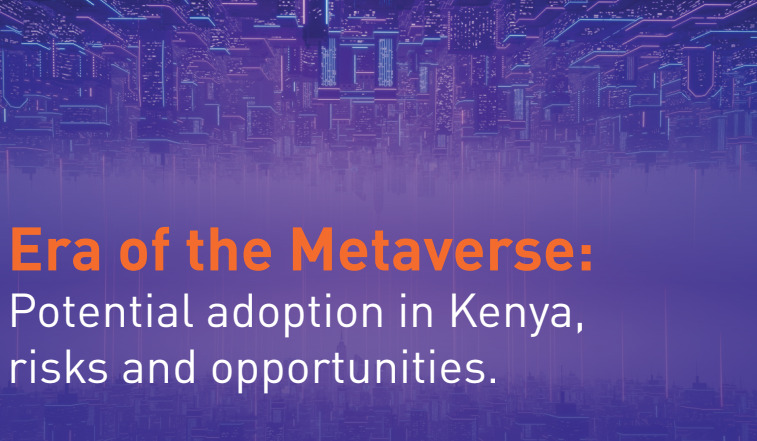Era of the Metaverse: Potential adoption in Kenya, risks and opportunities

The Metaverse can best be described as an evolution of today’s internet and as something we are deeply immersed in, rather than something we primarily look at. It represents a convergence of digital technology to combine and extend the reach and use of cryptocurrency, artificial intelligence (AI), augmented reality (AR) and virtual reality (VR), spatial computing, and more. Essentially, the Metaverse is supposed to be a 3D version of the internet that is seen as the logical next stage of development, and would ideally be accessed through a single gateway.
There’s no doubt that the Metaverse will change how we work across the world. The Metaverse promises to bring new levels of social connection, mobility, and collaboration to a world of virtual workew technology already exists to incorporate work into the Metaverse. For example, NextMeet, based in India, is an avatar-based immersive reality platform focused on interactive working, collaboration, and learning solutions. Its mission is to remove the isolation and workforce disconnectedness that can result from remote and hybrid work. Another example, PixelMax, a UK-based start-up, helps organisations create immersive workplaces designed to enhance team cohesion, employee wellness, and collaboration. They are virtual workplaces, which are entered via a web-based system on your computer and don’t require headsets.
In legal practice, there has been a slow but steady adoption of the Metaverse. A growing number of law firms have already put down stakes and bought property in the Metaverse, including ArentFox Schiff, Benesch, the Rose Law Group, and Pond Lehocky Giordano.
Legal proceedings and government services in the Metaverse
A Colombian court case was recently heard in the Metaverse with participants using virtual reality headsets and interacting via avatars. The hearing was conducted in Spanish, with the Colombian magistrate reportedly instructing participants to secure Oculus Quest 2 eyeglasses and configure their avatars in advance. However, those without access to VR headsets had the option to take part via a standard video call. The judge is also said to have consulted the artificial intelligence tool ChatGPT on whether to allow the case to be held in the virtual setting, asking it questions such as: ‘What is an avatar?’
Similarly, Singapore’s Second Minister for Law, Edwin Tong, argued that solemnization of marriages have taken place online in the Metaverse. According to him, other government services in Singapore, including registration of marriages, will soon be available through the Metaverse. Meanwhile, South Korea’s government has already been taking steps toward the Metaverse after setting aside $177 million to develop a platform for citizens to access various government services through the Metaverse.
Can Kenya adopt the Metaverse
According to Start.io, there are about three million Kenyans that have used or engaged with the Metaverse. However, this is mostly through Roblox, Facebook, Epic Games, Twitch, and Discord. Businesses, government institutions and the general legal profession are yet to join the Metaverse.
With time, Kenya may adopt the Metaverse into its various institutions. There is potential for its use in the legal profession. Currently, many cases are heard virtually through Microsoft Teams. This has helped streamline cases and has increased the efficiency of the Judiciary.
However, its potential adoption raises several challenges. The Metaverse can create challenges for international law and sovereignty. If virtual cities can be created, why not virtual countries? Why not virtual countries that mimic a particular country, say Kenya, but with different characteristics, borders or ideologies? And if a particular conception of a virtual nation became popular and people are buying virtual property there, or working or doing business there, what impact would that have on the real nation that has been mimicked?
Furthermore, applying the law, even to the simplest matters, will be challenging. If, while a virtual fight breaks out and one avatar hits another, is that assault and battery? What if the users were wearing haptic suits such that the victim of the virtual blows can feel the impact, but not to the same degree as if it were to happen in real life? Would this meet the threshold for battery or assault?
These are some of the legal questions that the adoption of the Metaverse will create. While this should not discourage its use, it should start prompting lawmakers to make such considerations.

